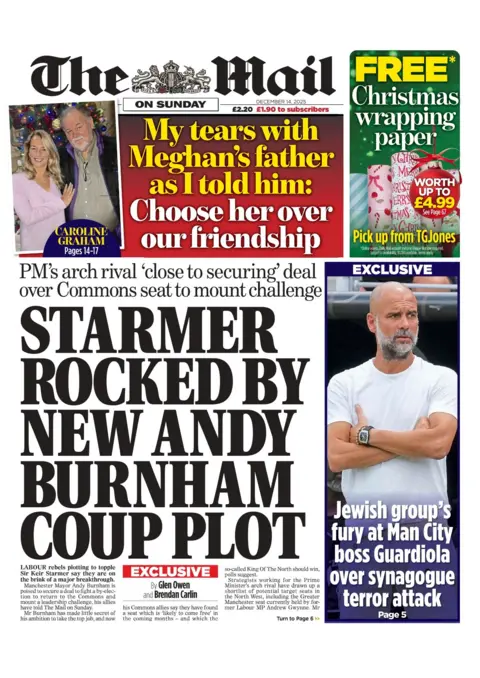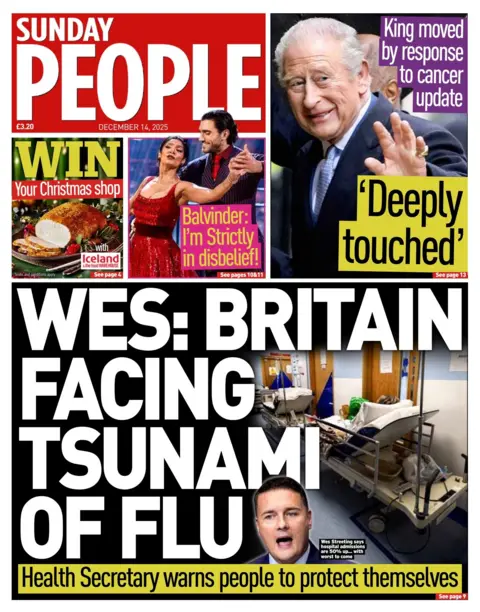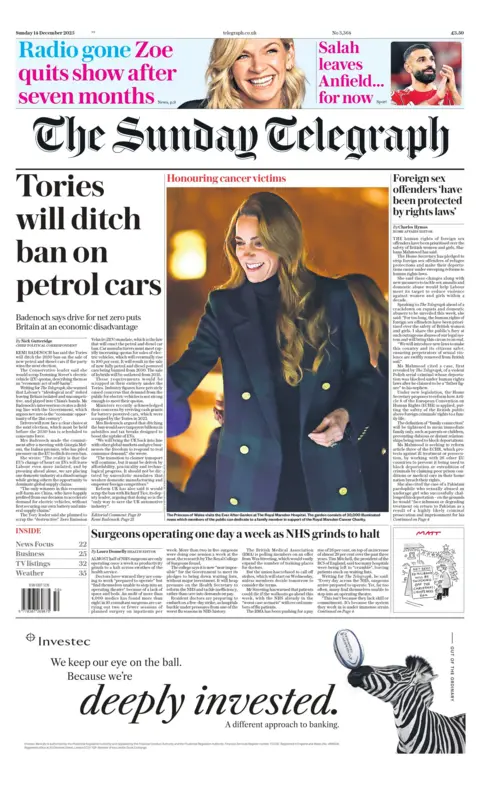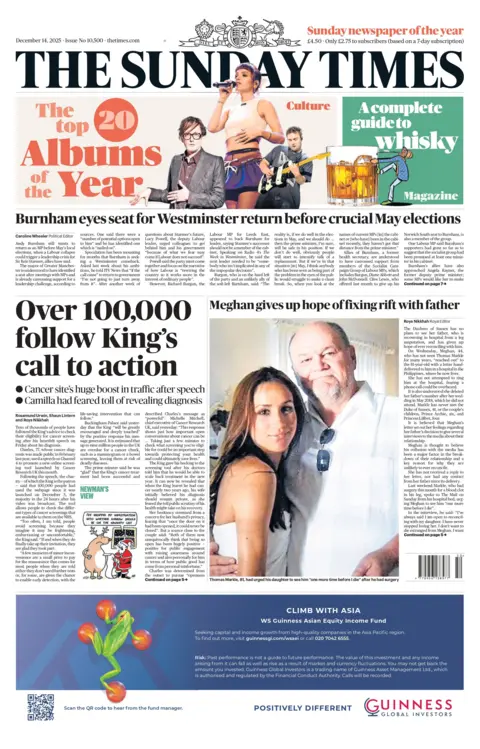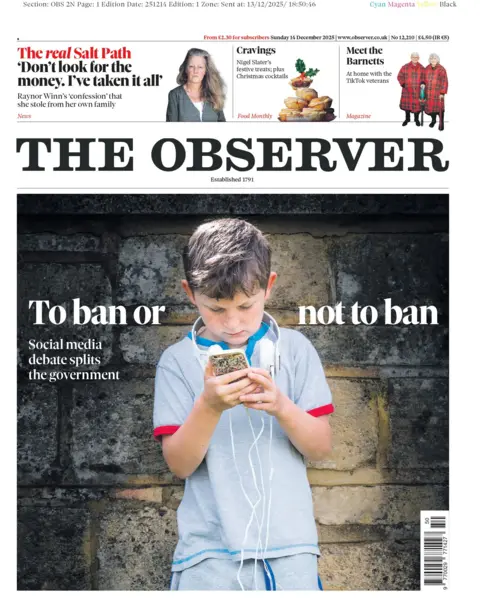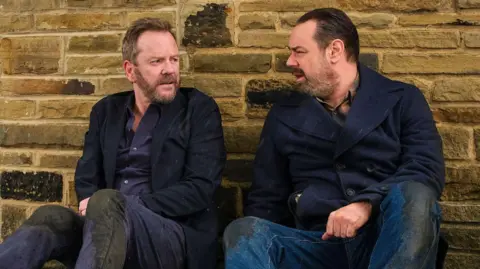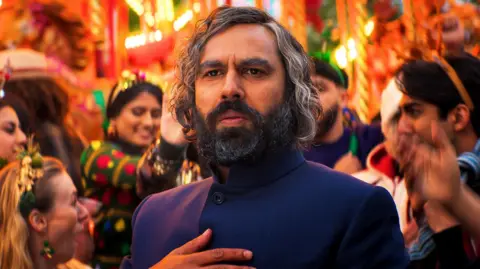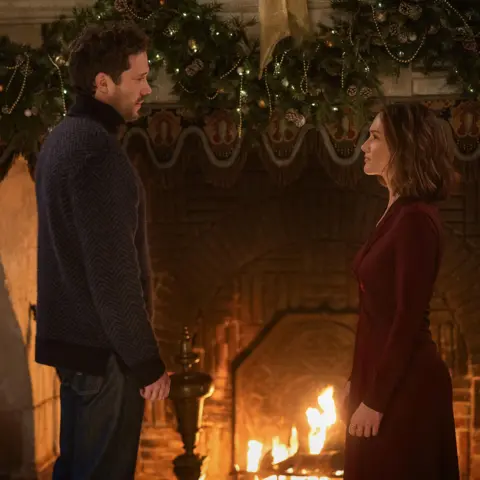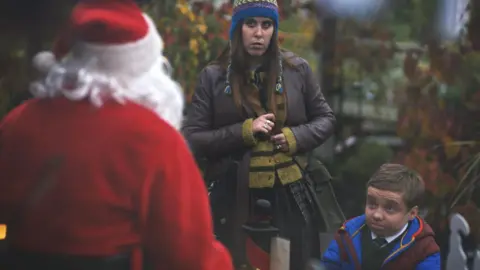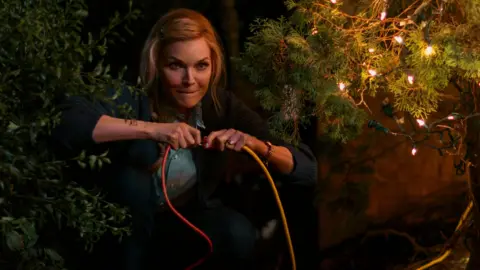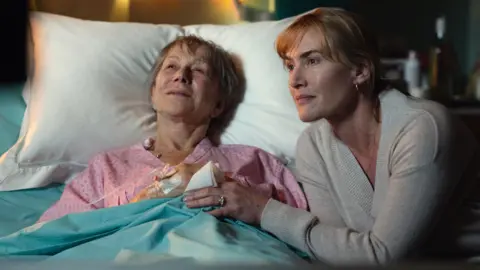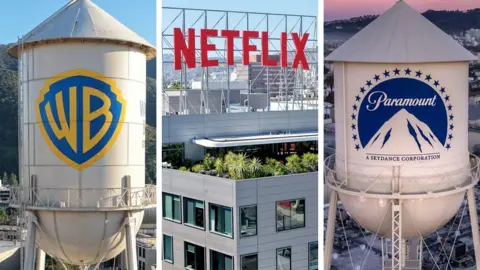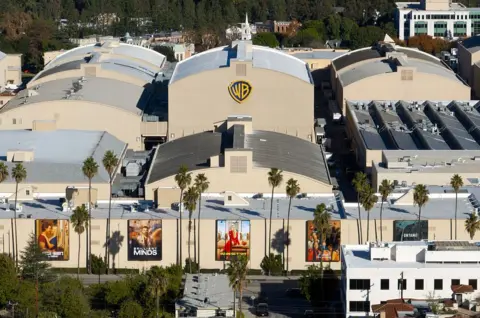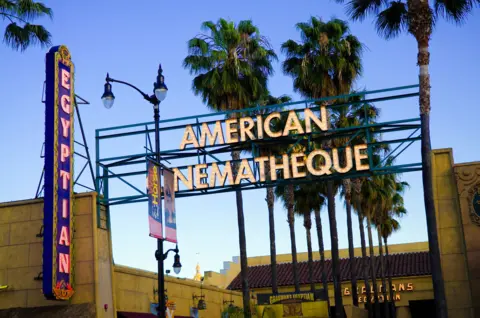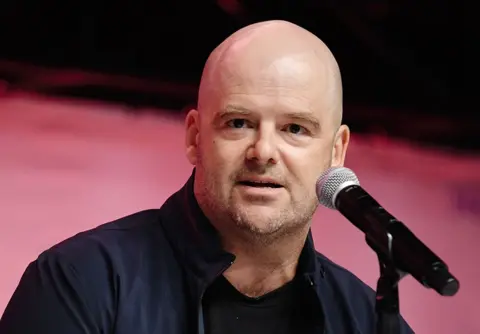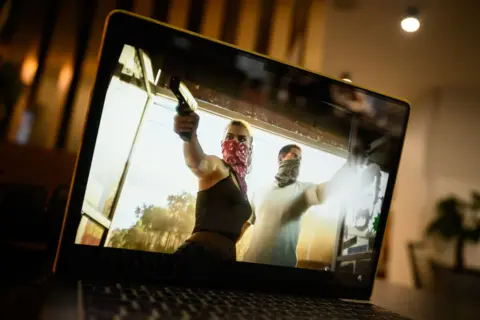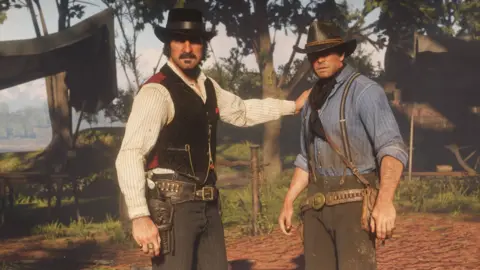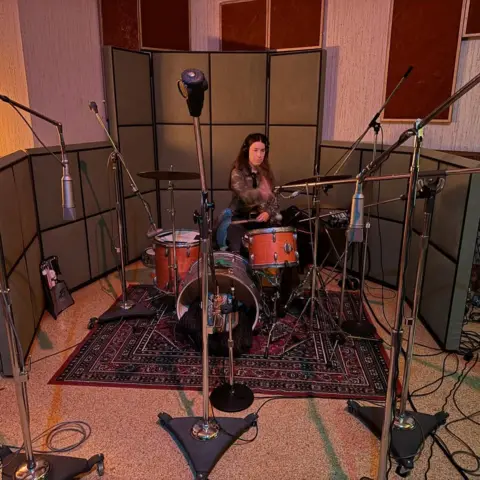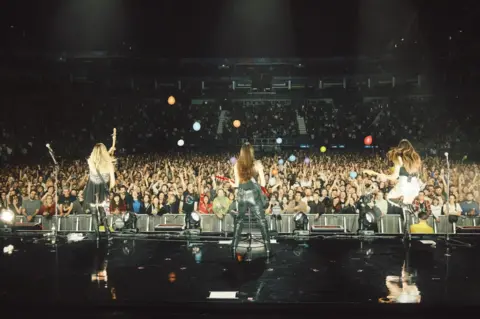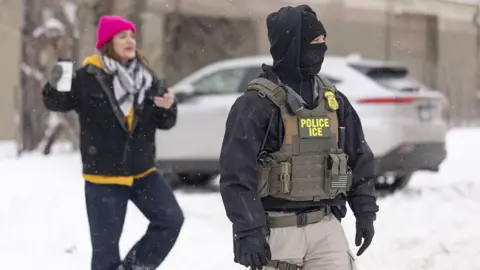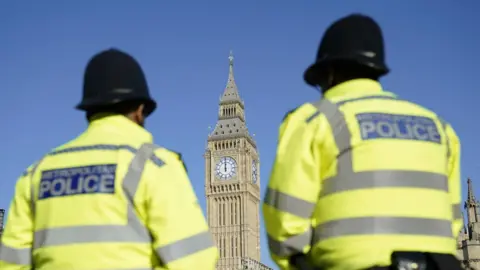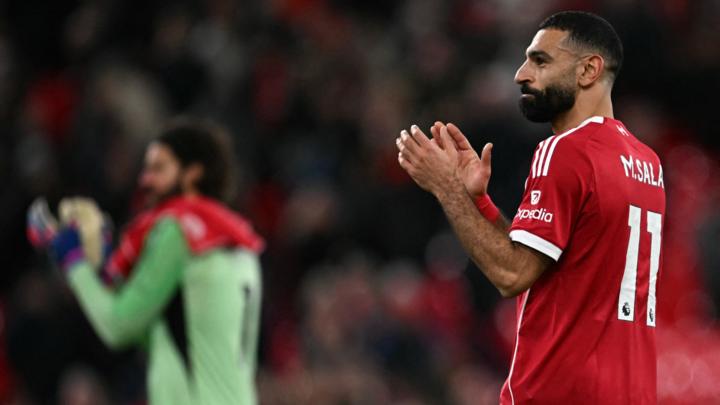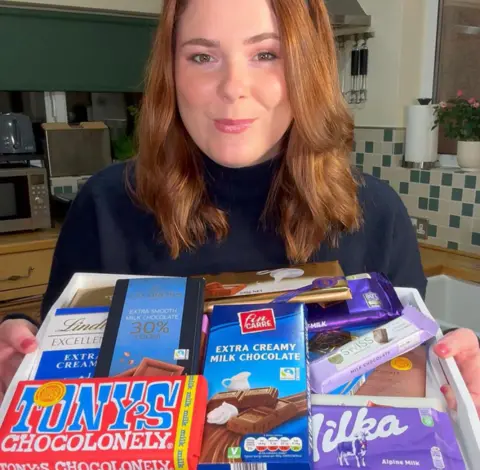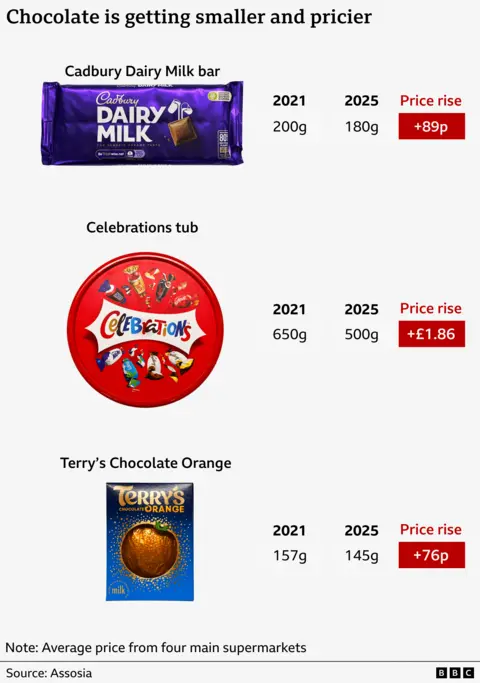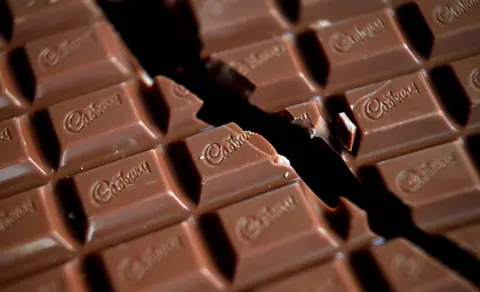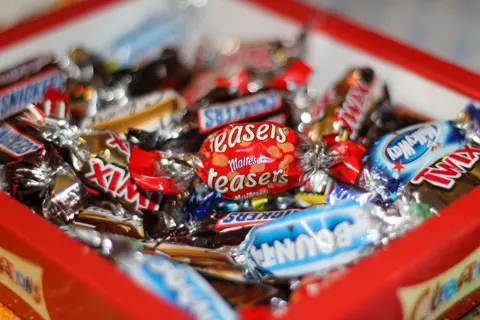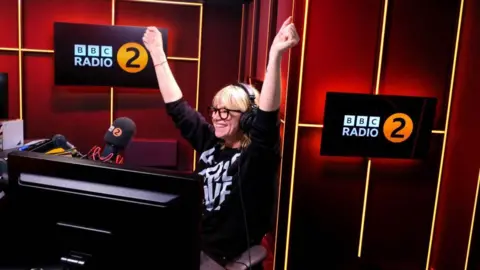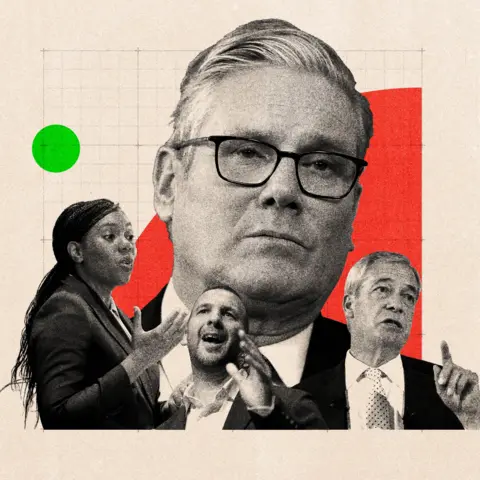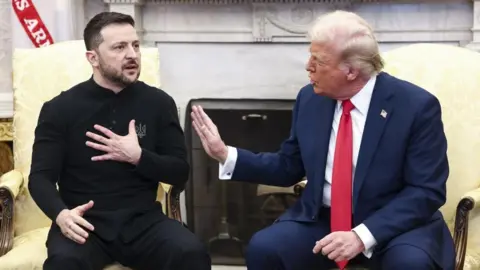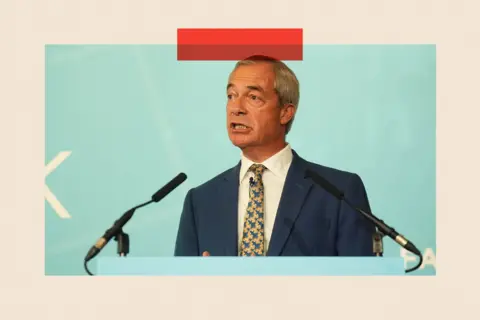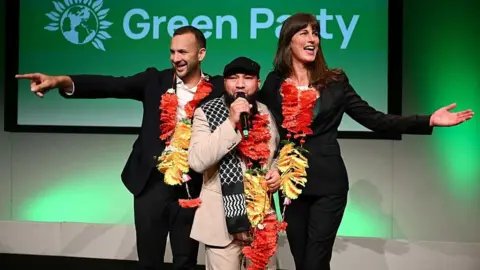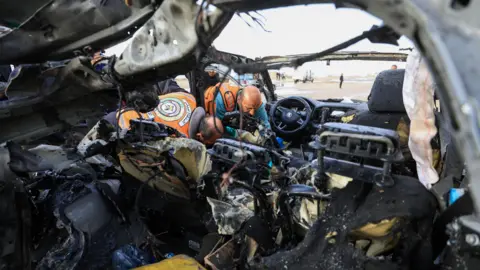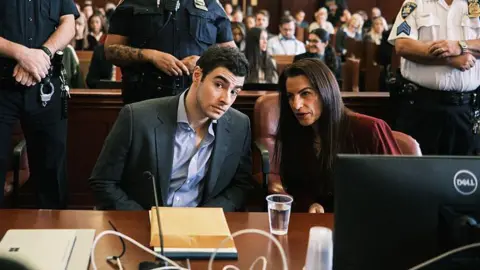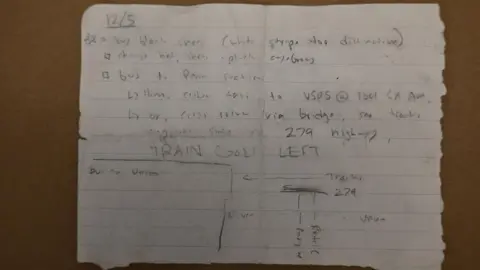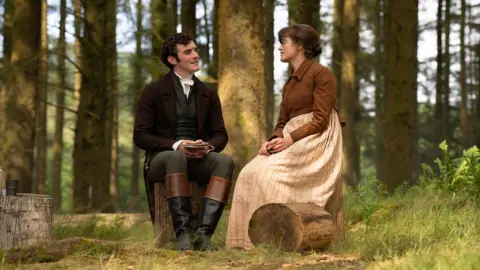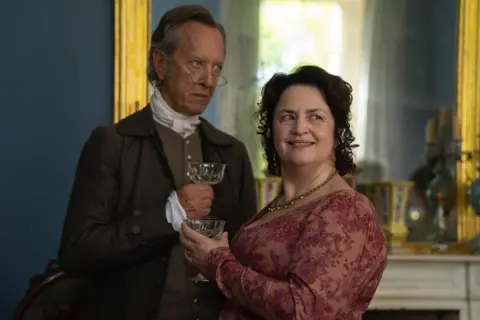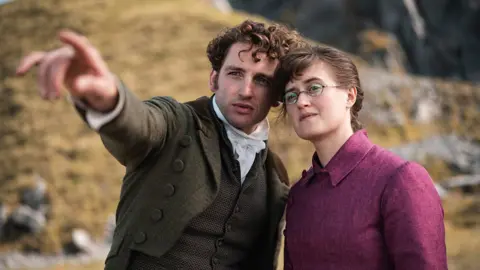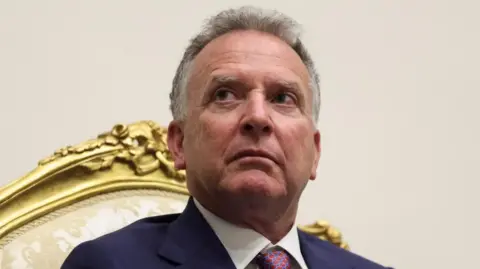We asked Mormons what they really think about The Secret Lives of Mormon Wives

 Hulu/Disney+
Hulu/Disney+Infidelity, divorce, even "soft-swinging" - not words traditionally associated with Christianity, but just some of the themes in the hit US reality show, The Secret Lives of Mormon Wives.
The TV series follows a group of female influencers in Utah - the home of the Church of Jesus Christ of Latter-day Saints (LDS) - as they deal with friendship fall-outs, romantic problems, and their relationship with their faith.
"These Latter-day Saints are no angels," last month's trailer for season three declared, setting the tone for what was to come. The show became the most-watched unscripted season premiere of 2024 on Hulu and continues to attract millions of global viewers there and on Disney+.
And the cast of women, who previously gained notoriety on TikTok under their "MomTok" banner, have gained scores of social media followers.
But do Mormons living in the UK think the show gives a fair portrayal of their religion? BBC News has spoken to some, many of whom prefer to be referred to as members of the Latter-day Saints rather than Mormons.
"We're normal people," Ben, a podcast producer who lives near Burnley, says.
"So there is still infidelity, there are still extramarital affairs, probably at a significantly lower percentage because we are intentionally trying not to do that. But those things still happen."
The show is appointment viewing for Ben's wife Olivia, who he says "loves it" - having put the new season in their calendar so she didn't miss it.


When the first series aired last year, Ben, 27, feels there was "hesitancy" in the LDS community about it. Now, he says people are mostly supportive of the women on the programme and wouldn't say they are "embarrassed" by them - "because we're not".
"In the UK, if you spend a week with a Latter-day Saint family, it will probably be generally quite boring and average," he says.
Ben and Olivia are among the approximately 185,000 LDS members in the UK. The church was founded by Joseph Smith in the US in 1830, who said he received a revelation from God, which he translated to become the Book of Mormon.
Members of the LDS believe the Book is the word of God, like the Bible. Unlike other branches of Christianity, members do not believe Jesus is himself God, rather that they are separate beings.
They are perhaps best known for their missionary tradition, where every year thousands of young Mormons are sent by the LDS to different locations around the world to recruit others to the religion.
In 1837 the first missionaries from the newly founded LDS arrived in the UK in Preston, Lancashire - now home to Europe's largest Mormon temple. Earlier this year, plans to expand the temple, where Ben and Olivia sometimes worship, were approved by councillors.
'It's not the way they live their life'

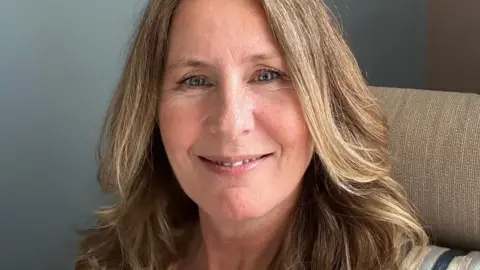
In Buckinghamshire, Traci, 57, tells BBC News after growing up in the LDS, she moved away from the faith aged 17 when her mother died. About a decade later, pregnant with twins, she says she prayed every night, scared and asking for help. When her sons were born, and missionaries knocked on the door, she says she "felt the Holy Ghost's presence".
Since then, she's been a practising member of the LDS - which, among other things, means abiding by a health code that prohibits drinking tea, coffee and alcohol, and eating meat sparingly.
Traci, a psychotherapist based in Olney, decided not to watch the Secret Lives of Mormon Wives, but from what she's been told about it, says "it's not representative of the women" she knows in the LDS. "It's not the way that they live their life."
She says she understands "sometimes people do have a curiosity about members of our church, they do want to know what makes us tick", but adds: "Sometimes I worry, how are we being represented? How do you see us?"

 Disney/Natalie Cass
Disney/Natalie CassOne of the major themes of the TV show is the pressure the women feel in their family lives. Jessi, a woman in the show whose storyline revolves around an emotional affair she had, says avoiding to deal with issues in her marriage contributed to infidelity - and blamed Utah's Mormonism for creating "a lot of pressure to have the perfect relationship, the perfect family and everything's great".
Back in the UK, we also spoke to Ben and Olivia's friend Ashlyn who went to university in Utah and now lives in Burnley with her husband Joe, and their nine-month-old son.
She says the show is "a really accurate representation of the church in Utah, and culturally what Utah looks like, where belief meets cultural practices".
The sheer number of Mormons there means that pressure to have a family comes not just from the Church, but from "everybody that you interact with", Ashlyn, 25, adds.
"That pressure is very real. A lot of us call it the Utah bubble."

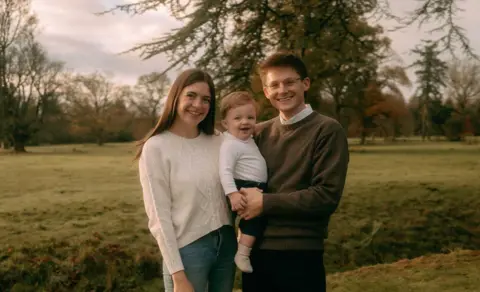 Becy/Bell Art Photography
Becy/Bell Art PhotographyBut she says it's not the same in the UK. She describes the show's US cast as "probably more culturally members" of the LDS, rather than devout believers.
Ashlyn describes her experiences of the LDS as encouraging, rather than pressuring. "Some people view a lot of the commandments, and what people might label 'rules', as very confining and almost like there's all these gates holding me in," Ashlyn says, "whereas for us, it's viewed a little bit more as safety. It helps direct us in the right way."
'Soft-swinging' and race issues in the show
And so-called "soft swinging", one of the show's scandals, would "definitely" be "discouraged" by the Church, she says.
Influencer Taylor Frankie Paul was at the centre of the story in series one of the show, when she described her and her then-husband as being sexually intimate - but stopping short of "going all the way" - with two other couples at various parties.
Ashlyn explains how in the LDS, "we have something called the law of chastity that says we should really save sexual relations within our marriages".
She says her lifestyle in Burnley is "very family-centered, very healthy, trying to focus on going to church on Sunday, serving others, being a really good example to others, and helping in the community".
Ashlyn adds: "I don't think it would be as entertaining if The Secret Lives of Mormon Wives was actually just them bringing cookies to their neighbours and just living very wholesome family lives."
Another theme in the show centres on Layla, a black member of the LDS, who stops attending because she says the Church didn't "resonate" with her any more as a person of colour, having converted to LDS and moved to Utah when she was 16.
"There is an old scripture in the Book of Mormon that states that black skin is a curse. It's something that I am aware of now that I wasn't aware of when I first converted," she says in the latest series.
In 2013 the LDS "disavowed" those teachings, and now believes "everyone is an equal child of God regardless of race".
BBC News spoke to Naomi, a 'Young Women's President' in her local congregation in London, meaning she looks after girls between the ages of 12 and 18 in her area. She told us how as "a black female", she hopes the children "can see me and my example and know what's possible".
Naomi says she hasn't "had any negative experiences" in the Church based on her race, and says the teachings "have been denounced".


The members of the LDS in Britain we spoke to had mixed opinions on whether The Secret Lives of Mormon Wives represents their way of life, with most agreeing that parts of it were exaggerated depictions.
Ahead of the first series of the show last year, the Church of Jesus Christ of Latter-day Saints in the UK released a statement titled, "When entertainment media distorts faith".
While it didn't name the show, it said: "A number of recent productions depict lifestyles and practices blatantly inconsistent with the teachings of the Church.
"We understand the fascination some in the media have with the Church, but regret that portrayals often rely on sensationalism and inaccuracies that do not fairly and fully reflect the lives of our Church members or the sacred beliefs that they hold dear."
Naomi, who is a TV producer working on reality shows, knows all too well that it's a classic of the genre that "things are going to be heightened, things are going to be produced to get the desired effect".
"I'm very aware of that."
